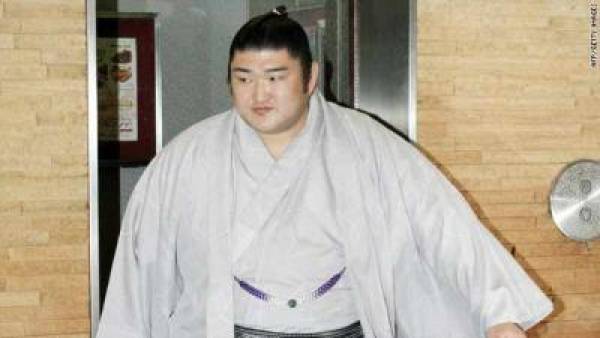New Sumo Tournament Starts Amid Gambling Scandal

TOKYO (AFP) - One of Japan's top sumo tournaments began in Nagoya Sunday without live TV coverage and with fans staying away in disgust at a scandal over illegal gambling.
The 15-day event opened only days after police raided 13 sumo stables and dozens of offices and houses for evidence linking wrestlers and stablemasters to gambling on baseball organised by yakuza mobsters.
In Japan, betting is permitted only on horse racing, bicycle races and some motor sports.
Hundreds of would-be spectators cancelled their tickets to the Nagoya tournament, one of the six competitions held every year in Tokyo, Nagoya, Osaka city in the west and Fukuoka city in the southwest.
Major corporate sponsors have withdrawn from the tournament along with public network Japan Broadcasting Corporation (NHK), which for the first time in half a century has not offered live coverage of the event.
Instead of its usual three-hour live broadcasts of the tournament, NHK will air only a daily 20-minute roundup of the event.
To clean up the sport, Japan Sumo Association has fired, demoted and suspended dozens of wrestlers and stablemasters who routinely bet in the illegal gambling ring or failed to supervise wrestlers. The association also banned 18 wrestlers from the Nagoya tournament.
In a show of remorse, the association has declined to award the coveted Emperor's Cup, Prime Minister's prize and other awards regularly given to tournament winners.
Japan's 2,000-year-old national sport has rapidly fallen from grace with recent revelations of drug use, extortion and the 2007 death of a trainee tortured during hazing.
The gambling scandal followed news that top members of the Yamaguchi-gumi crime syndicate had been given ringside seats at recent sumo tournaments, apparently to send silent messages to jailed gangsters watching in prisons.
The scandals and the failure of the secretive sumo authority to deal with them have angered the public, with many people demanding the Nagoya tournament to be cancelled altogether.
Under pressure, the association fired one wrestler and one stablemaster and punished other sumo elders after learning that at least 27 wrestlers, masters and others have admitted to gambling on baseball.













